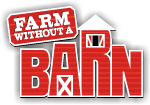Peat Moss Alternative
 A 32 litre bag of peat moss alternative SEA SOIL essential soils
A 32 litre bag of peat moss alternative SEA SOIL essential soils
Why use an alternative to Peat Moss? This is a very common question when I tell people that we make a coconut coir option in our mixes. Both our Potting Mix with SEA SOIL and our Container Gardening mix are available with either peat moss or coconut coir. Peat Moss has been used in the garden industry for a long time; it is harvested out of peat bogs and used as a PH balanced additive to increase moisture content and prevent soil compaction.
Peat harvesting is not a sustainable industry as it takes thousands of years to form peat that can be harvested in just one week. Harvesting also alters a necessary eco-system and releases large amounts of stored carbon into the atmosphere.
When taking the leap from making SEA SOIL original to creating mixes, we researched the benefits of other similar products that would parallel our company's values and decided upon coir. SEA SOIL is a value added soil that is made from cannery leftovers and forest fines (bark left-over from the logging industry). We do not harvest anything to make our peat moss alternative product. Therefore, it does seem redundant to add a product that is not sustainable.
Coir is a natural product extracted from the husk of the coconut leftover from processing. Unlike peat moss, it is free of bacteria, fungal spores, and weeds (SEA SOIL is also weed-free). Coir is odourless, pleasant to handle, has a high water holding capacity, is lightweight and holds nutrients well. Coir also has an acceptable PH and EC making it the best alternative to peat moss.
Upcoming Events
There are no events to display.
SEA SOIL Articles
Growing Your Soil
Not the Landfill. All of our bags, pallets and pallet wrap can be recycled. Our plastic is made from no. 4 LDPE (Low-density polyethylene) plastic which can be recycled by returning clean, dry, empty plastic bags to recycling drop off centers or retailers and municipalities (curbside collection also) that provide designated plastic bag recycling. Wooden pallets can be reused or recycled at designated wood recycling areas with your municipality.
OMRI Tested
We believe that all soils should have a required minimum set of testing standards when it comes to growing. That is why we contacted O.M.R.I. years ago to start the process of approving SEA SOIL. We regularly test our SEA SOIL for heavy metals, ecoli and even fecal coliforms to make sure SEA SOIL is the best choice for gardeners and growers.



